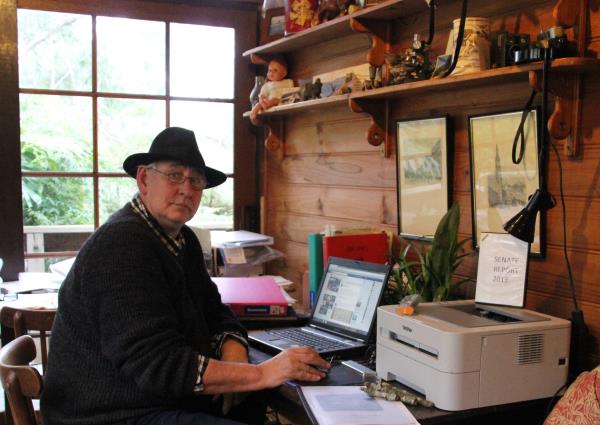By KATH GANNAWAY
WILLIAM Hammersley’s story is on the record.
Chapter by chapter, the Warburton man adopted out as a baby in an era when forced adoptions were commonplace, has had his story included in the Forced Adoptions History Project in the National Archives of Australia.
It’s a significant step forward for increasing awareness and understanding of the heart-breaking events and policies that saw mothers forced to relinquish their babies, and children who grew up living a lie.
Under the title ‘Daddy Who … The untold story of baby trafficking in Victoria during the 1940s/’50s’, Mr Hammersley tells his own story, and highlights another aspect of adoption practices he says has yet to be fully exposed – the selling of babies.
Mr Hammersley never met his mother, but recently visited her grave.
His story talks of the circumstances around which his mother relinquished him describing it as “a swelling tide of circumstance (that) had snatched another babe from its mother’s arms.”
He says for 50 years he couldn’t forgive her for placing him for adoption with an abusive, ignorant family – until he found the truth.
“Australian governments have yet to acknowledge the plight of many infants and their vulnerable mothers during the 1940s and ’50s who were sold to couples for 50 pounds.
“These children’s stories remain a hidden part of our social and political history,” he said.
Mr Hammersley believes he was a ’50 pound baby’.
His research reveals an era where unwed young women and women escaping domestic violence looking to terminate a pregnancy or have an infant adopted were “fodder for unscrupulous adoption agents and abortionists”.
He draws on newspaper articles and public and private documents to present a case which is unapologetically condemning of church organisations for the role they played, of governments and bureaucracies, and of a “1950s capitalistic conservative society that demanded a manageable, commercially productive population” where compassion didn’t suit the imperatives.
While the guidelines which dictated how he told his story allowed the expose of historic events, comment on the current political take on adoption, both homegrown and overseas, was off limits.
Mr Hammersley says his story as a ‘black market’ baby can be linked to today’s political thinking around adoption which he says is about finding new ways to demonise people and take their babies.
He says the media around recent cases of overseas surrogacy and proposals for new legislation around drug-addicted mothers and adoption, sound warning bells that will again favour the need of the adoptors over parents and the child.
Mr Hammersley argues that ownership is an outdated practice.
“No-one is against caring for a child where that need is there; what we object to is ownership and the denial of that person’s heritage; the secrets, the lies and the false reality,” he said.
“If a child is cared for by a loving couple who want to care for a child, then that can be done with guardianship, without changing names, birth certificates and creating a false reality,” he said.
Mr Hammersley’s story can be found at forcedadoptions.naa.giv.au//experiences.







